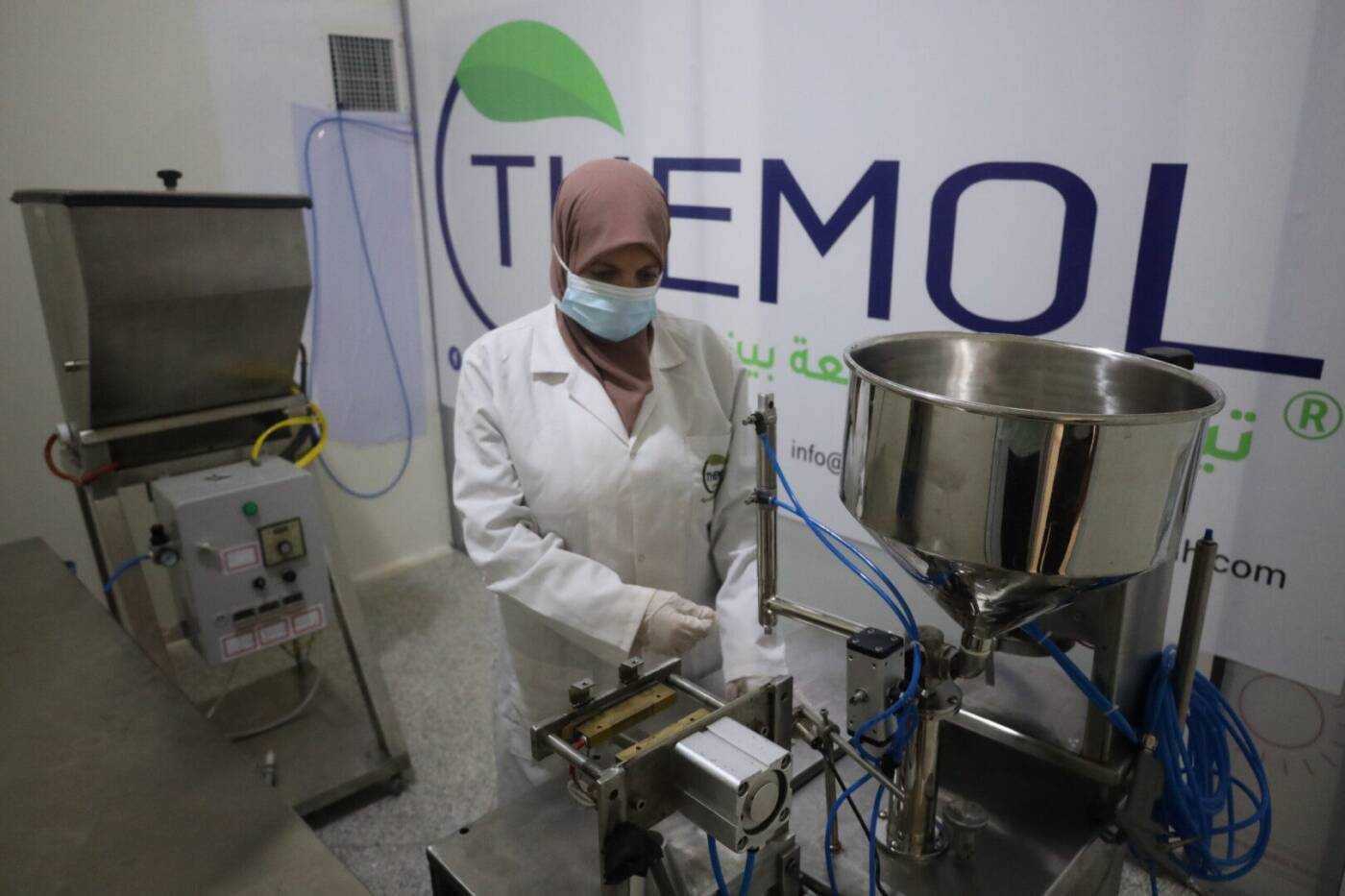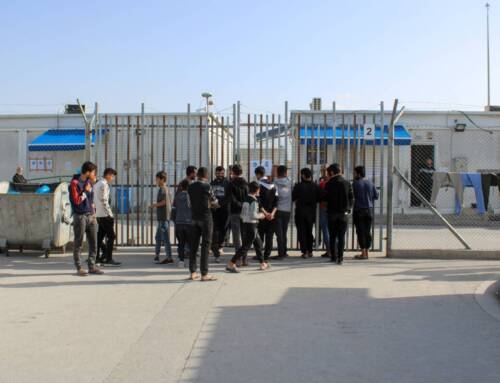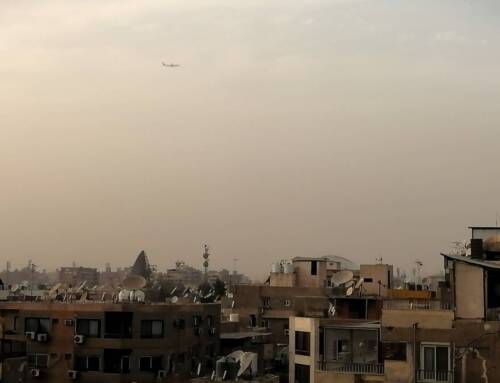Women entrepreneurs launch businesses in northwestern Syria
Women entrepreneurs in opposition-held northwestern Syria are launching successful businesses, at times with microfinancing support from local organizations.
28 September 2023
IDLIB — In opposition-held northwestern Syria, some women are breaking through challenges of displacement and life in the camps to launch their own businesses.
One of them is Safa al-Mousa, a pharmacist and entrepreneur from the northern Hama city of Taybat al-Imam. She fled her hometown for Turkey after she was pursued by regime security forces for her involvement in medical and relief efforts, as well as her participation in peaceful demonstrations, she said.
After spending a year in Turkey, she returned to Idlib province, where earlier this year she founded Themol, “a leading company specializing in the production of safe, scientifically-proven medical skincare products.” Her company, based in eastern Idlib’s Binnish city, “is the first of its kind in the area,” al-Mousa told Syria Direct.
The idea for her company first took shape in 2015. To make it a reality, she “conducted a series of experiments and scientific research, and completed a course on good manufacturing practices offered in collaboration between Hashemite University in Jordan and the Idlib Pharmacists Syndicate,” she said.
In May 2023, after two years of work and reviews by the Department of Drug Control and Licensing within the Hay’at Tahrir al-Sham (HTS)-backed Syrian Salvation Government (SSG)’s Ministry of health, al-Mousa launched her company.
Themol produces seven types of creams, all produced “in compliance with the quality standards set by the laboratories of the Faculty of Pharmacy at al-Shamal Private University (SPU) and the SSG Ministry of Health,” she said. Her products are on the shelves in around 70 pharmacies across northwestern Syria.
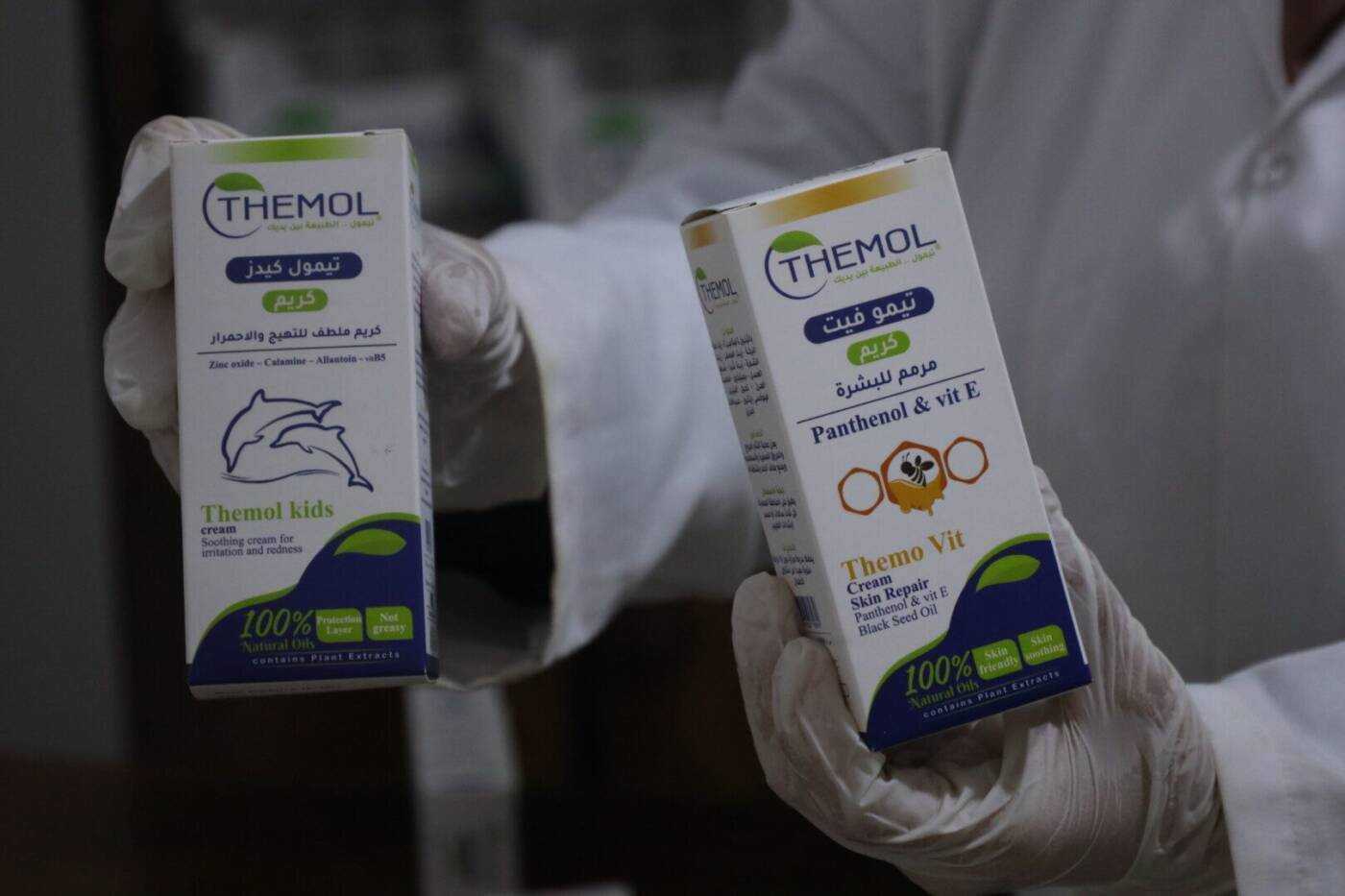
Safa al-Mousa holds two of her Idlib-based medical skincare company’s products, 17/8/2023, (Ahmad al-Atrash/Syria Direct)
Al-Mousa’s company has not only provided her with economic stability, but also employs five displaced Idlib residents—three women and two men. All her employees have “been trained in the safe handling of chemical and medicinal materials, security and safety protocols, as well as packaging and supply,” she said.
About 100 kilometers away from Themol, Shaimaa Hilal, 30, opened Byelba’elek (It Suits You), a women’s accessories store in the northern Aleppo city of Azaz, two years ago. Displaced from Idlib’s Saraqeb city in early 2020, Hilal started her store with a microgrant given her limited resources.
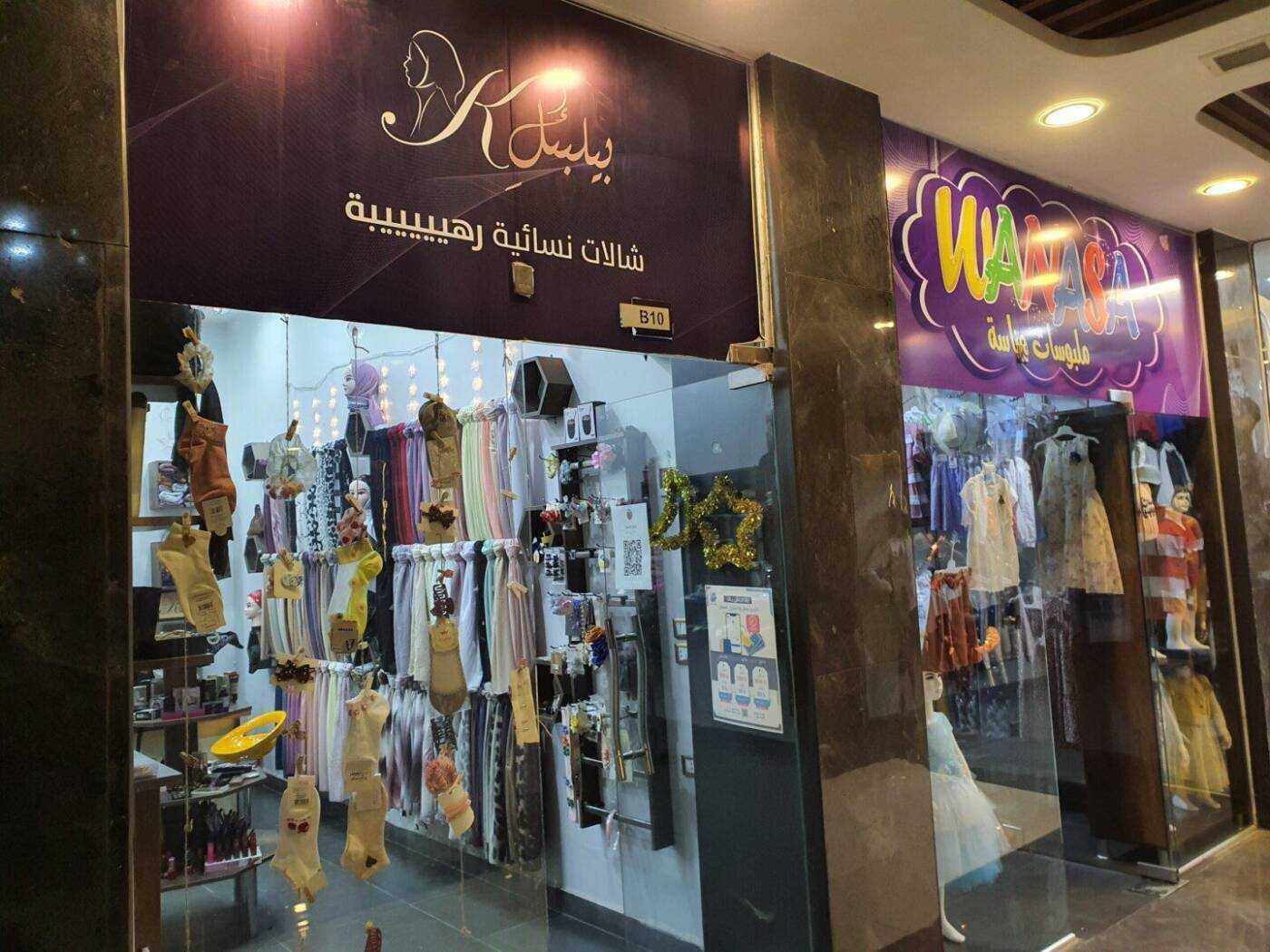
Shaimaa Hilal’s store, Byelba’elek (It Suits You) in northern Aleppo’s Azaz city, 19/8/2023, (Ahmad al-Atrash/Syria Direct)
Hilal’s small business grew out of her childhood interests. “Since I was little, I’ve been drawn to elegance and women’s accessories,” she said. One year after her family settled in Azaz, she launched her store, which “became widely popular among customers.”
Facing challenges
In addition to the challenges faced by women in northwestern Syria, Hilal has impaired mobility due to “the absence of the femur in my right leg since birth,” she explained. Still, she lives life on her own terms.
“I’ve adapted to life with one leg, thanks to my family’s support and encouragement since childhood,” Hilal said. “I’m not missing anything, since I have my crutch—it’s my companion and my source of support.”
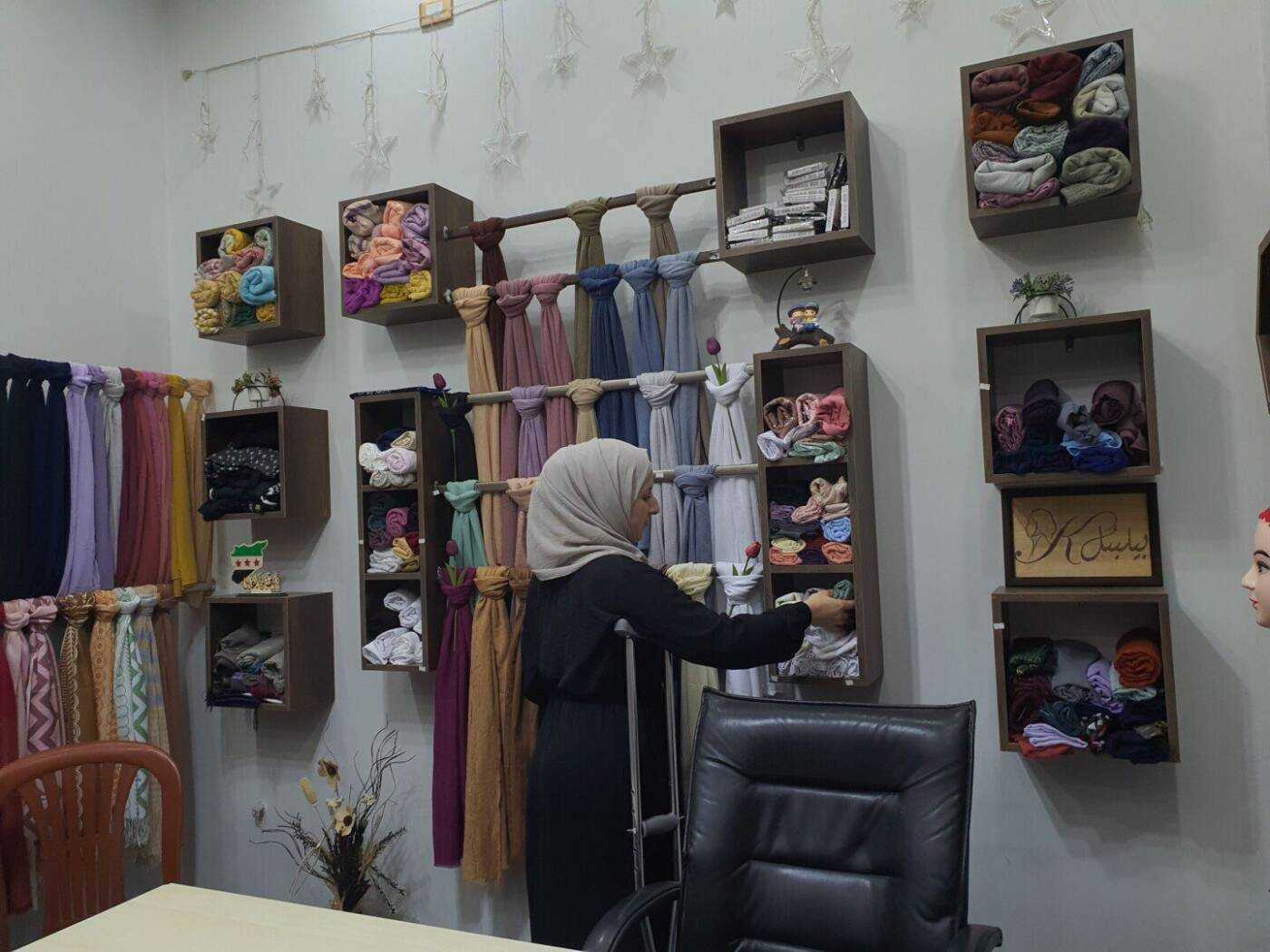
Shaimaa Hilal arranges women’s headscarves in her store in Azaz, 19/8/2023, (Ahmad al-Atrash/Syria Direct)
When Hilal was first displaced to Azaz, she worked with volunteer teams to assist other displaced people. During this time, she also enrolled in the Faculty of Special Education at the Free University of Aleppo, all while planning to start her own business.
In the beginning, her business faced some stumbling blocks, including the need to secure funding and reach potential customers. However, by “leveraging social media and providing new products tailored to the local market’s needs, my store became a favorite destination for women seeking accessories,” she said, emphasizing that “persistence is the key to success.”
Al-Mousa faces her own set of challenges, including the “unstable exchange rate of the Turkish lira [used as the main currency in northwestern Syria] against the dollar.” She also grapples with “the low purchasing power of the region’s residents,” which includes more than two million internally displaced people out of a total population of six million.
Her business also “occasionally faces shortages of imported raw materials required for manufacturing, with no local alternatives available,” al-Mousa said, noting “the absence of effective government policies to protect local products.”
Empowering women
Enthusiasm alone is often not enough for women to start businesses in northwestern Syria. They often need financial assistance from supporting organizations, and challenging living conditions mixed with limited resources can stifle their project ideas in their early stages.
Hilal’s project would not have come to fruition without a $1,600 grant from a humanitarian organization supporting small businesses in northwestern Syria, she said, as she had no other funds available when she first launched her business.
Several programs are actively working to economically empower women in northwestern Syria—who make up 30 percent of the area’s six million people—by “offering support through financial grants or administrative training aimed at enhancing women’s capabilities and fostering their leadership skills,” according to Ahmad Qutaish, Youth Empowerment Program Coordinator at Violet, a humanitarian organization in northwestern Syria.
Violet Organization has undertaken several vocational projects aimed at economically empowering women “through individual and group training to help them achieve financial independence,” Qutaish said. “Around 450 women, both displaced and local residents, have benefited from these projects, which include grants to start their own businesses. These women are part of a larger group of about 1,200 women who have participated in the organization’s vocational training programs.”
Another organization that has been helping women in northwestern Syria is Hayat Microfinance Fund, which provides loans through its “dignity wallet” for women who are the main providers for their families, Muhammad al-Hajji Mahmoud, director of the fund’s office in the western Aleppo countryside, told Syria Direct.
“The organization has provided $600-$1200 loans to be repaid within a 12-month period to 300 women from Jarabulus and Atareb in the Aleppo countryside, as well as Hazano, Killi and Maarat Misrin in the Idlib countryside,” he said.
Before receiving funding, “women complete vocational training in various areas including sewing, hairdressing, making preserved food and selling clothes and small groceries,” Mahmoud added. Some “80 percent of the women who have received loans still maintain self-sufficiency through their businesses,” he noted.
Syrian women’s success in the face of adversity “reflects their determination to lead a dignified life for themselves and their families,” according to activist Sanaa al-Ali, who believes women empowerment and training programs in the region “are a very important step.”
Highlighting the value of supporting small projects “because they bring women stability,” Hilal advised other beneficiaries to prioritize “integrity and persistence.” Some businesses come to an end, she noted, “after they sell assets they bought with the grant money.”
**
This report was produced as part of Syria Direct’s MIRAS Training Program, in collaboration with Violet Organization, for early-career journalists in northern Syria. It was originally published in Arabic and translated into English by Nouhaila Aguergour.

